By Habib Unoigbokhai Aruna
In less than a week, the people of Edo State will go to the polls to elect a new governor after eight years of Governor Godwin Obaseki. This election is not just another one in the calendar but a pivotal moment that will shape the future of our state. It’s a decision that will either propel us forward or set us back in our progress and development.
This is why state citizens should be allowed to elect the candidate of their choice without intimidation and harassment from security agencies or any federal government agency. The three major candidates, Asue Ighodalo of the PDP, Olumide Akpata of the Labour Party, and the APC candidate, Monday Okpebholo, have been crisscrossing corners of the state in the past few weeks, selling their manifestoes to potential voters.
From their campaigns, one could easily deduce their plans for the people and how they want to go about it. The PDP candidate came with many credentials, from being a boardroom guru to decades of experience managing men and women. He was even said to have an encouraging hand in the governments of Adams Oshiomhole and Obaseki, which presupposes that he has enough experience to get the job done from day one.
Another candidate is Akpata, a former Nigerian Bar Association (NBA) President, partner in a foremost law firm in Lagos, and businessman. Given the effective campaign he’s run so far, Akpata is undoubtedly qualified to lead the state. However, it remains to be seen if his party has the requisite structures across the state to consummate a governorship project. How the implicit zoning arrangement will affect his chances at the poll remains debatable.
Yet another major candidate is the APC’s Senator Okpebholo. The senator was largely unknown before he ran for the governorship primaries. When political pundits predicted the victory of Oshiomhole-backed Dennis Idahosa at the primaries, Okpebholo surprised bookmakers by coming out on top of the pack.
One would have, however, expected him to come out swinging and articulating a position on how to solve the myriads of problems facing the Heartbeat state. Instead, until recently, the APC candidate has been elusive, leaving Oshiomhole and other party leaders on the trail to be speaking on his behalf.
Even so, critics have variously accused him of lacking the ability to communicate his message to the people effectively. It is this incoherence and consistent avoidable mistakes, they argued, that made his party shield him from the public. But how could such a person have won the governorship ticket of a major political party at this time and age?
How wobble could a recruitment process be to produce such a candidate in a state with more capable individuals? And what did the party leaders do to tutor their candidate and prepare him for the rigor of a governorship campaign? These are pertinent questions that should agitate the minds of more than casual observers.
As a citizen of Edo State and a political writer, I believe that the APC candidate is one of the worst to have come out to vie for the Osadebey Avenue Government House in recent memory. Over the past few months, I have attended many public and town hall meetings, where the candidates were to come and tell the people what they had in stock. The candidates were to go and face various professionals who hailed from the state and tell them what the people should expect in the next four years. Unfortunately, while others turned up, Senator Okpebholo and his representatives also failed to show up. How should we compare him with others and make reasonable conclusions about whether to support him?
But the events of the past few days should concern lovers of democracy. The Edo State chapter of the PDP announced that it would withdraw from the National Peace Accord for the September 21 governorship election, citing alleged police bias.
It’s important to note that the PDP’s decision was not unilateral, as it was made in consultation with other parties who shared similar concerns. At the event, state chairs and candidates from 17 political parties signed the peace accord. Still, PDP Chairman Dr. Tony Aziegbemi and the party’s candidate, Asue Ighodalo, though present, chose not to sign.
This withdrawal raises concerns about the potential for unrest and violence during the election. Governor Obaseki also indicated that the PDP might not sign the Peace Accord, accusing the police of favoring the APC and waging a campaign against the PDP. Obaseki claimed that the police, allegedly manipulated by the APC, arrested at least 10 PDP leaders who were considered significant opponents in the upcoming election. He questioned how they could sign a peace accord with an umpire already displaying bias.
Peaceful elections are crucial for the democratic process and the future of Edo State. However, the Inspector General of Police, Kayode Egbetokun, assured that the police would remain impartial, professional, and vigilant while ensuring a level playing field for all political parties and their candidates. He called on stakeholders to promote peace, tolerance, and respect for the democratic process to create a safe environment for a credible, fair, and peaceful election.
Peaceful and credible elections are not conducted in a day. They are a process. The process leading to the day of the election must be transparent, credible, accessible, and fair. Once the process has been compromised, it would be easier to have a credible election. This is not just a matter of procedure but a fundamental requirement for a healthy democracy. Only when these three relevant bodies are impartial, independent, and interdependent can we be sure of credible, accessible, and fair elections.
Beyond this, however, the choice before Edo voters on Saturday is stark: It’s between competence and mediocrity, between experience and opportunism, between going forward and moving backward.
This election should be beyond partisanship and about coming together to rescue the state and put it on a sound footing so that a better and more fruitful future can await our children and their children. And this is no time to sit on the fence. Hence, based on the above, I won’t think a second before supporting Asue’s aspiration to take over from Governor Obaseki.
• Aruna was Chief Press Secretary to the Former Governor of Lagos, Mr. Akinwunmi Ambode
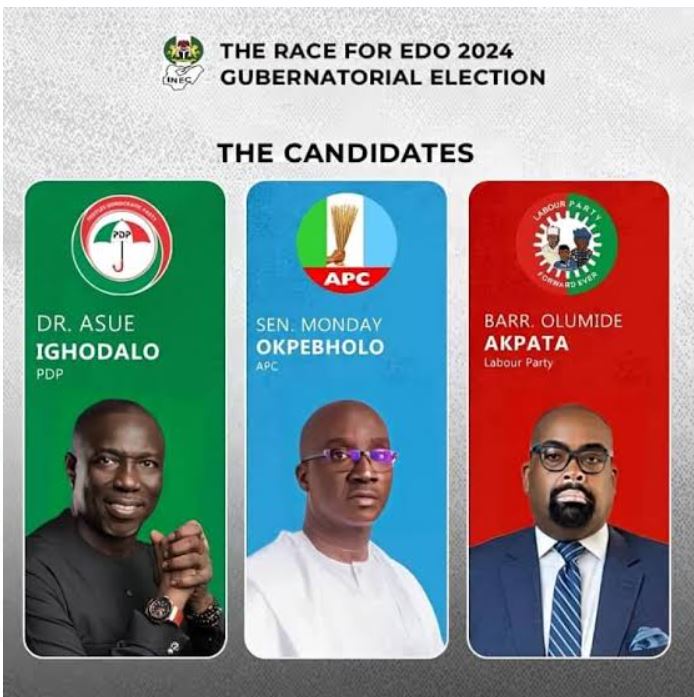

 Football1 week ago
Football1 week ago
 News7 days ago
News7 days ago
 Health6 days ago
Health6 days ago
 Comments and Issues1 week ago
Comments and Issues1 week ago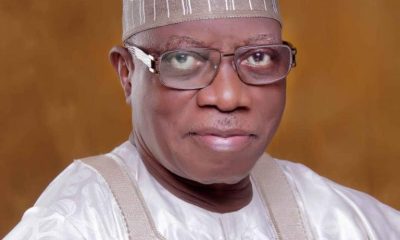
 Comments and Issues1 week ago
Comments and Issues1 week ago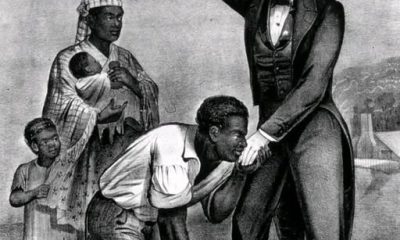
 Comments and Issues1 week ago
Comments and Issues1 week ago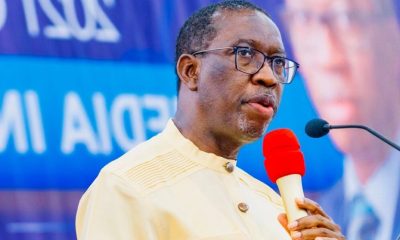
 Comments and Issues1 week ago
Comments and Issues1 week ago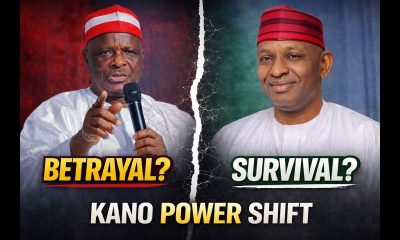
 Latest1 week ago
Latest1 week ago
